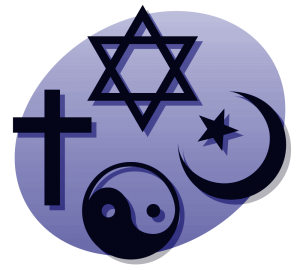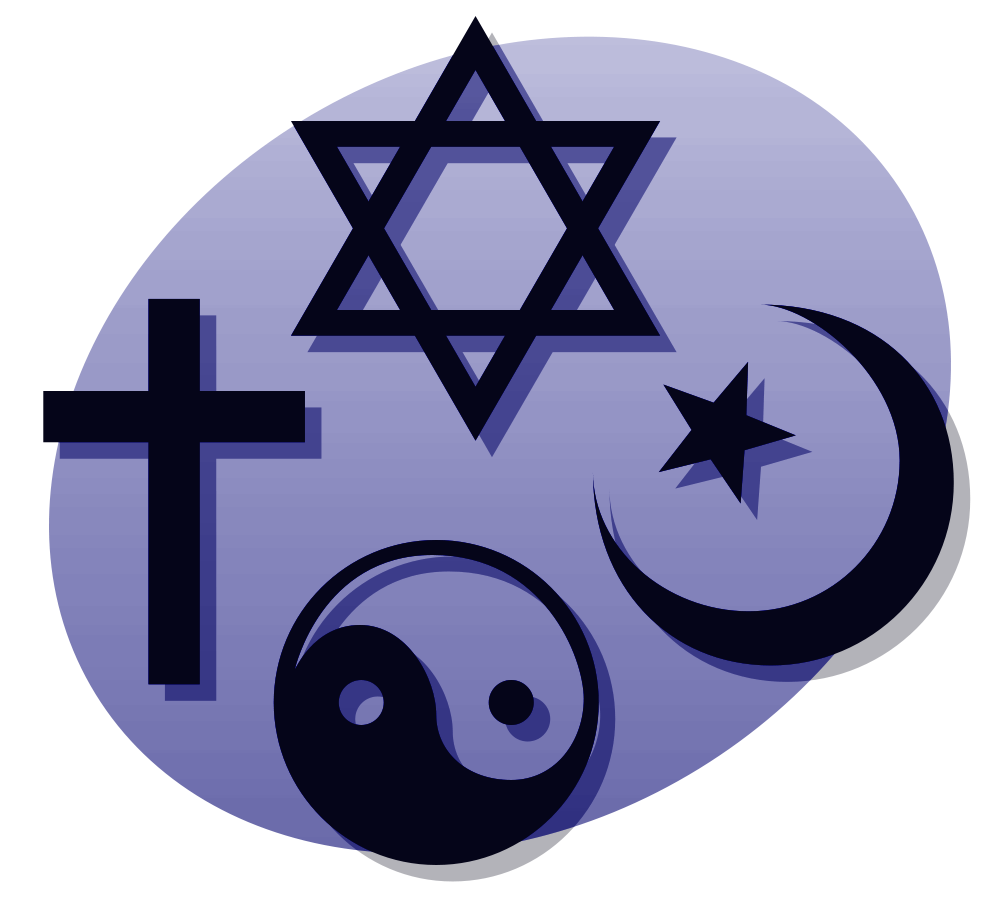 By Paul Esau (Sports Editor) – Email
By Paul Esau (Sports Editor) – Email
Hello, and welcome to The Cascade’s new Belief Column! As most of you know, UFV is attended by students from a wide variety of religions and philosophies, each representing a different tradition and a different perspective on life’s mysteries. In this column, members of four of those perspectives – Christianity, Hinduism, Atheism, and Sikhism – will be attempting to respond to some of the bigger questions leveled at the religious institution.
This week’s question: what is the purpose of religion?
Christianity – Derrick Uittenbosch
Some religions focus on what must be done by the followers in order to achieve a reward (eternal life, reincarnation, and so on). In Christianity, the primary purpose of the belief system lies not in telling the followers what to do, but in showing what God has already done through the person Jesus Christ. But first, a little background.
In a nutshell, the story of the Bible is as follows: God created a perfect world and perfect human beings to live in it. Very quickly, the humans decided to reject the perfection both in them and in the world, and in doing so set off a cataclysmic chain of events which badly tainted the perfect world. This is the source of sickness, suffering, pain, depression, natural disasters, and other sad and damaging events. While God in his perfection did not like this state of affairs, he had given us the option to choose an alternative to his design, even if that alternative was painful. One of the painful consequences was ultimate separation from God in hell. But in his unfailing and unfathomable love, God created a plan to rectify this painful situation. The purpose is to redeem and heal the broken creation and restore everything and everyone back to His original perfection in ultimate happiness, joy, and love.
When someone calls him/herself a Christian, he/she has decided to accept the freely offered gift of redemption. First, the person acknowledges a need for healing and a desire to be unified with God in ultimate joy in heaven – as opposed to being forever separated from God in ultimate suffering in hell. Secondly, that person commits to taking the tough step of joining with God in His plan to redeem the rest of our broken and destitute world. That is God’s purpose for the “religion” of Christianity.
Derrick Uittenbosch is a third-year UFV student studying criminology. He is a leader of University Christian Ministries and attends Northview Community Church. Feedback is welcome at derrick@ufv-ucm.ca.Atheism – Aaron Bayes
Purpose exists only with reference to a person’s intent. A rock has no purpose for itself; it simply obeys the laws of physics. When a person uses that rock as a tool, it acquires a purpose. Religion is much like the rock. We know that it occurred naturally in early human history, not once, but many times. And it still happens today. A modern example that comes to mind is Scientology. The purposes that the faithful often ascribe to religion include promoting happiness, goodwill towards neighbours, and revealing the mysteries of the universe. I also hear that religion is what gives our lives purpose. I would like to point out that the human experience itself is more of a reason than any of us need to go on living. My family, hobbies, and even writing articles like this give my life great meaning and purpose. This philosophy of life being its own reward has a few different names; Humanism is one of the common ones. Go Google it. From my Humanistic philosophy flows my happiness, goodwill, and optimism. Then, with science and logic firmly in hand, I set out to discover the mysteries of the universe! And it’s much more fun than having them revealed!
Aaron Bayes is the president of UFV’s Atheists, Skeptics, and Humanists Club. Feedback is welcome at Aaron.Bayes@student.ufv.ca.
Sikhism – Happy Parmar
Religion is as old as human beings are. Religion is a way of life that you may or may not choose to follow. It helps you in all areas of your life. It helps you find comfort in God (whatever you believe in) when you lose someone or go through a tough time. It’s something really beautiful. Religions are guides, manuals, instructions, and doctrines for the purpose of living well. The root meaning is to unite with God.
The purpose of true religion is to carry forward an ever-advancing civilization. The spiritual and social teachings brought to humanity by the universal educators about every 400 to 1000 years strengthen and push human activity on the planet. These spiritual and social teachings have impelled humanity to advance from clan to tribe to village to town to city to city-state to empire to nation, and today we’re headed toward planetary unity, kicking and screaming.
The spiritual teachings of these universal educators reveal the universal truths of life according to our capacity to understand them at a given time in history and are embodied in the social teachings that energize and inform all human endeavors in the sciences and human relations.
I personally believe that every religion has two basic aims: to acknowledge the creator and to accept ethical and societal values as outlined by the creator.
Religion helps us to build faith, hope, and belief in a power that runs the entire world. The power may be something we call God, but it is true that most of the religions never explain this to us: is their religion’s god a man or woman? Was he/she born and will he/she die? Where does that power exist?
I am pretty sure that there are many questions that can’t be answered by any religion, but still, religion gives a man or woman the understanding to live peacefully and happily in all aspects and areas of his or her life.
Hinduism – Sheetal Deo
I don’t think there is a general purpose of religion; if there is, then perhaps I’ve missed it, because nothing about religion is general. I find it to be very personal – perhaps that’s why it’s as sensitive of a topic as it is. Having been raised by fifth-generation Fijians, and being a first-generation Canadian, my practice of the Hindu religion has, for lack of a better term, deteriorated enough from our Indian ancestors to refrain me from identifying as an orthodox Hindu.
Though I would not negate my practice of the Hindu religion or my identity as a Hindu, I would much rather identify myself as practicing the Hindu religion as I’ve understood it. I was born into Hinduism; my parents practiced and observed it – again – as they understood it, and I followed suit. Religion then was something different for me than religion now. Then, it was a guide – a handbook, really – of “do’s and don’ts.” Anything I needed to know to ensure a fulfilling life, religion provided in the colourful tales of the Bhagavad Gita or Ramayana. Now, religion has shifted from what I needed to know to the answer to that which I don’t know – a faith in a higher power to which I can confidently attribute that which I cannot explain. I believe this is the essence of the Hindu religion; as we read deeper into the scriptures, our understanding transcends the colourful tales and religious practices to a higher level of religious, spiritual, and life consciousness.
Sheetal is completing a philosophy major with a minor in political science. She is on the executive board of the South Asian Peer Network Association (SAPNA) – an extension of the Centre of Indo Canadian Studies at UFV, and serves as the president for the Student Association for Philosophical Counselling (SAPC), which is a division of the Association of Students for Philosophy (ASP).
Have a question or response for the Belief Column? Send it to esau@ufvcascade.ca


